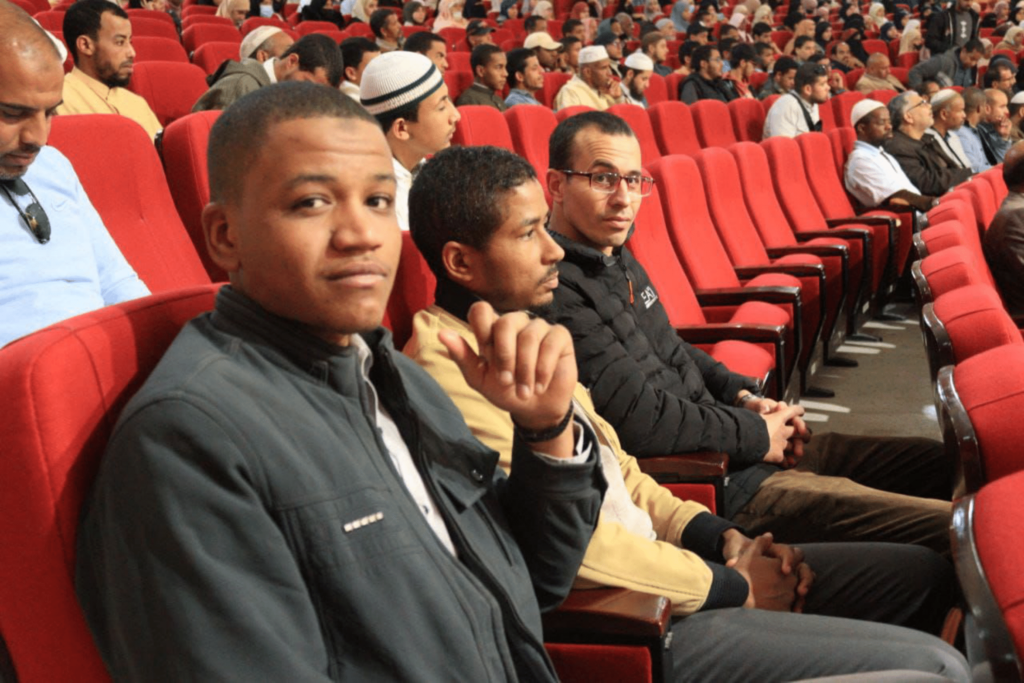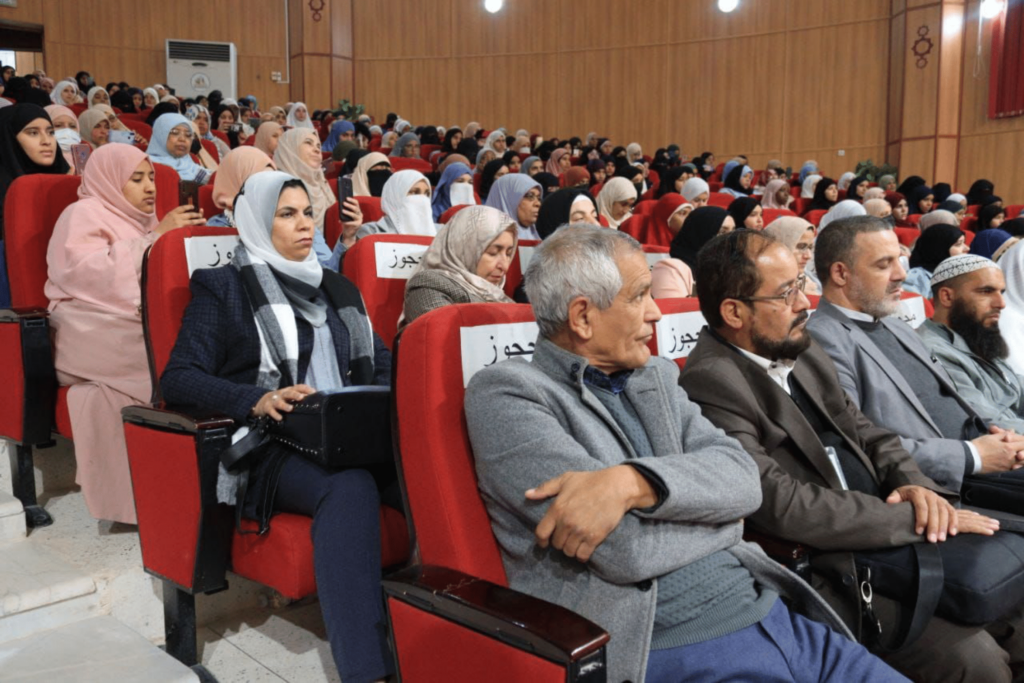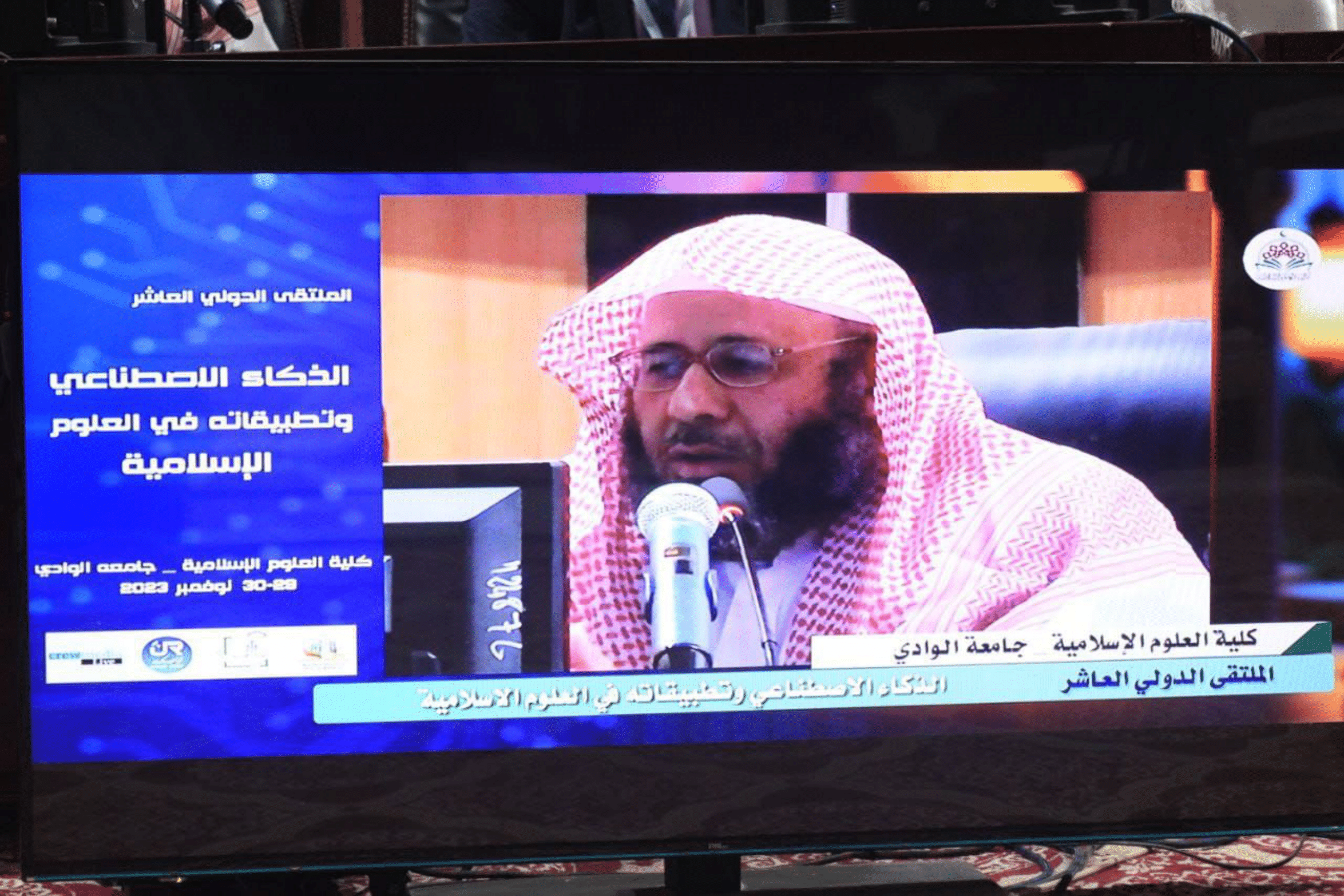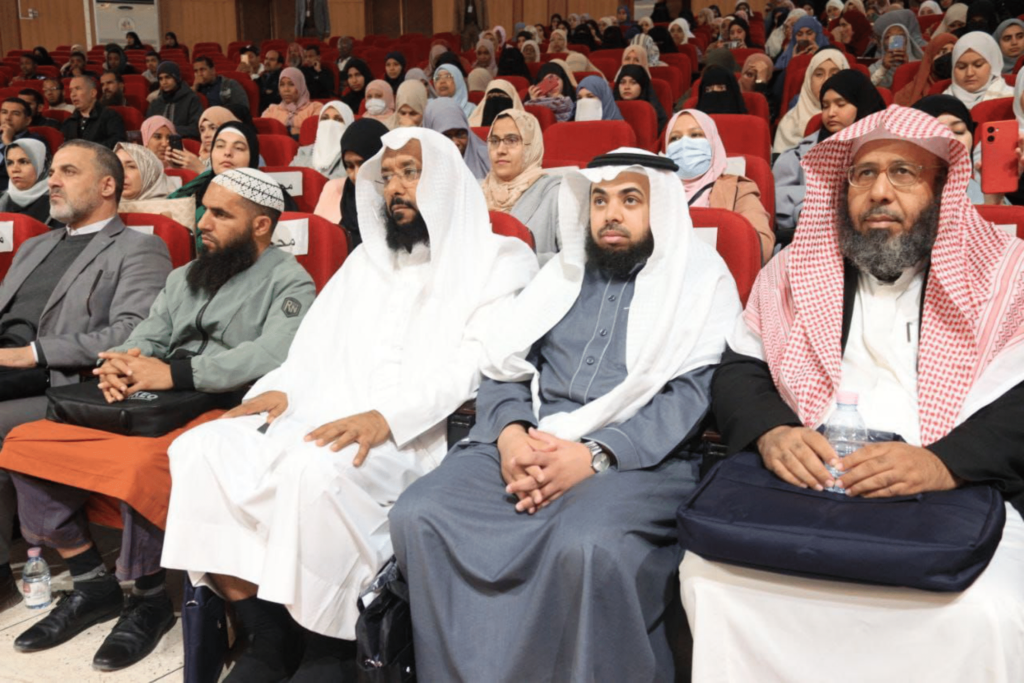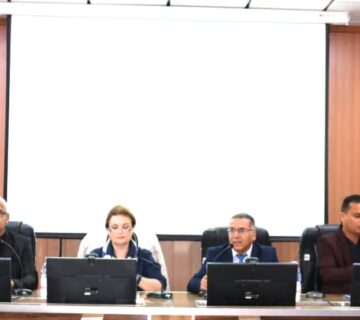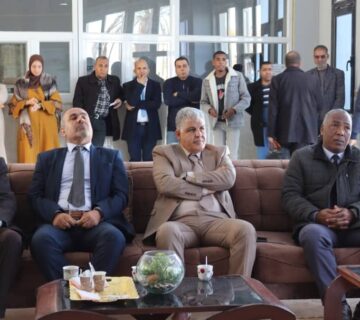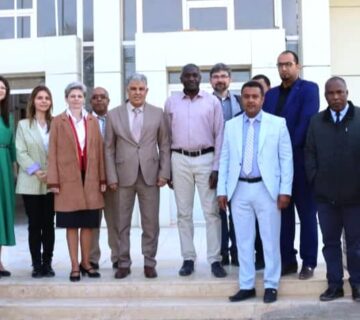The 10th International Conference on Artificial Intelligence in Islamic Sciences
The conference, supervised by the University Rector, Professor Omar Ferhati, is being held in the Abu Al-Qasim Saadallah Grand Lecture Hall. Dignitaries present at the inauguration ceremony include the Vice-Rector of the University in charge of Pedagogy, Professor Mennai Bachir, the Director of the Higher School of Saharan Agriculture in El Oued, Professor El Habib Guedda, and deans of faculties. Participating scholars hail from within Algeria and abroad, including Saudi Arabia, Tunisia, Sudan, and Malaysia. Additionally, professors from Malaysia and Sudan are joining virtually via Zoom technology.
Professor Rahmani Ibrahim, Dean of the Faculty of Islamic Sciences and Chair of the conference, highlighted the event’s role in fostering collaboration and dialogue among researchers and experts from across the Islamic and Arab world. He expressed his hope that the conference will yield valuable insights into the significance of artificial intelligence, its applications in Islamic sciences, and the ethical considerations surrounding its usage. Dr. Miloud Lifer, Director of the conference, outlined the event’s objectives:
-
Reinforcing the openness of Islamic sciences to the realm of artificial intelligence in the era of the digital revolution.
-
Elucidating how artificial intelligence techniques can serve various Islamic disciplines.
-
Bridging the gap between researchers in Islamic sciences and specialists in artificial intelligence systems for knowledge exchange and intellectual integration.
-
Exploring avenues and methodologies for employing artificial intelligence in the service of Islamic sciences.
Conference Scope
Through approximately 50 research papers, the conference aims to:
-
Address the jurisprudential and ethical issues related to artificial intelligence applications.
-
Support policies and legal regulations that harness artificial intelligence for societal development and service.
-
Present and evaluate successful experiences in applying artificial intelligence in Islamic sciences.
-
Identify the key challenges facing the application of artificial intelligence in this domain.
Conference Sessions
The conference presentations are structured around four main themes:
-
Concept and Dimensions of Artificial Intelligence
-
Sharia Rulings on Artificial Intelligence Technologies
-
Harnessing Artificial Intelligence for Islamic Sciences:
- The Holy Quran and its Sciences
- Prophetic Hadith and its Sciences
- Islamic Jurisprudence and its Principles
- Theological Studies and Comparative Religion
- Islamic Call and Culture
- Arabic Language and Quranic Studies
-
Applications of Artificial Intelligence in Islamic Sciences: Challenges of Reality and Future Prospects
Seven scientific sessions have been scheduled to address these themes.
A notable aspect of the conference is the active participation of doctoral students. Three training workshops have been specifically designed for them under the supervision of the Laboratory of Fiqh and Judicial Studies. The workshops focus on “Epistemological Integration and its Impact on Fatwa Production” and will involve the discussion of 15 research papers presented by doctoral students from the University of El Oued and beyond.
